Exclusive:'Existential threat' warning over future of Scotland's events and festivals
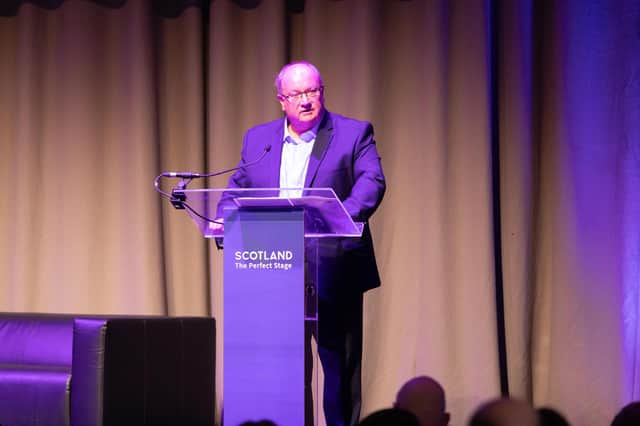

Scotland's events and festivals are facing an "existential threat" which could set the country back 20 years, according to one of its leading industry experts.
Paul Bush, VisitScotland’s outgoing director of events, has warned that decades of success could be swiftly “eroded” unless future investment could be secured.
Advertisement
Hide AdAdvertisement
Hide AdHe warned that the industry was facing its most challenging ever period due to the combined impact of funding constraints, climate change, rising costs and recruitment problems in the sector.
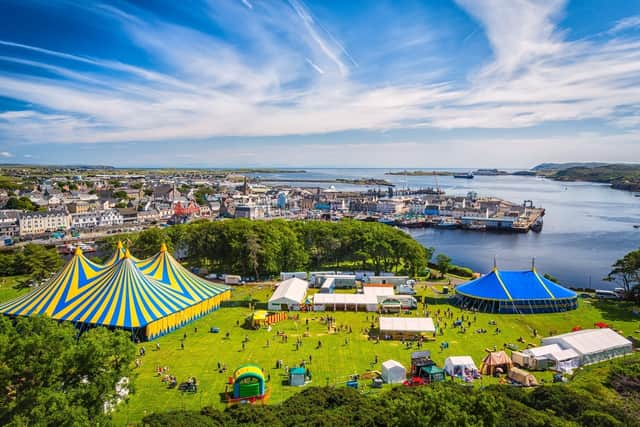

Mr Bush, who has led Scotland's efforts to attract major events over the last 20 years, called for a united effort from the industry to safeguard its international reputation, protect its “crown jewels” and ensure there was a pipeline of new events to inspire future generations.
He warned that the "inextricable links" between Scotland's tourism and events sectors were at risk if there was a collective failure to convince decision-makers to invest in events.
Mr Bush said there were few other industries were able to match events for their wide-ranging impacts, but admitted that the industry needed to make a much stronger case to secure new investment.
Mr Bush, who has also overseen the development of Edinburgh’s festivals over the last two decades, suggested both the city and the country had failed to make the most of the Scottish capital’s global reputation for hosting events.
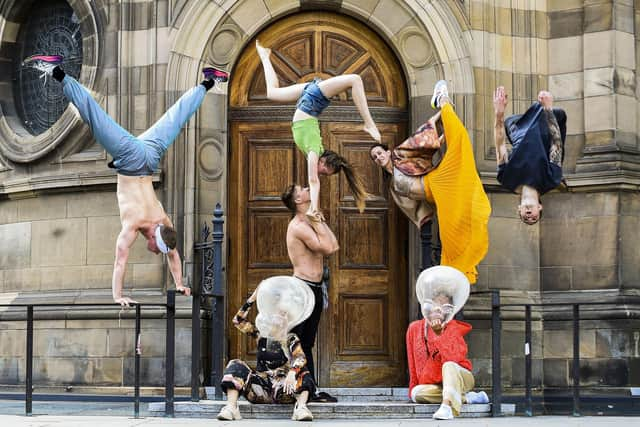

He was speaking at a major events industry summit in Edinburgh, which was held ahead of the forthcoming publication of a new strategy expected to shape the festivals and events landscape over the next decade.
Mr Bush, who was involved in the bids to attract the Commonwealth Games, the MTV Europe Music Awards and the Ryder Cup to Scotland, said it was crucial for the country to "maintain ambition" and "take risks" in future.
Advertisement
Hide AdAdvertisement
Hide AdHowever he suggested that was becoming increasingly difficult due to levels of red tape, including new legislation and regulations around events.
Speaking at the Assembly Rooms in Edinburgh, Mr Bush said: “Events serve as a catalyst for innovation, bringing together diverse perspectives for debate, fostering collaboration and sparking creativity that propels society forward. A fantastic example of that is on our doorstep in Edinburgh, where we have one of the greatest celebrations of arts and culture in the world.
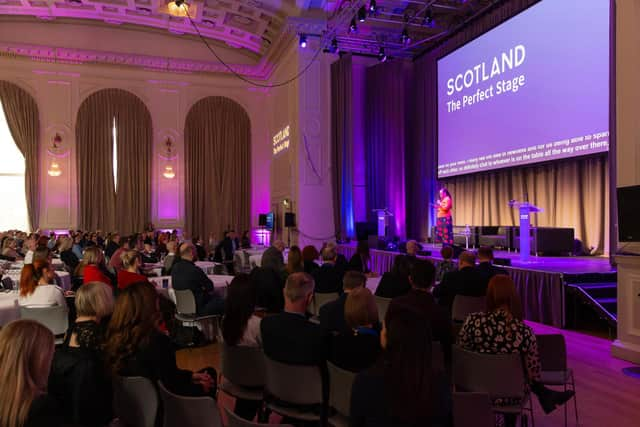

"For me, few industries have the impact that the events industry does. Events play an important role in our communities - they enable us to connect, enjoy and share memorable experiences. They also provide a vital means to generate and distribute additional positive social impact. The importance of that has never been greater.
"But how do we measure success? We need to think beyond just the economic impact. Whilst economic prosperity is crucial, the scope of opportunities events have in terms of key policy areas and global challenges is huge, for example tackling inequality and promoting environmental sustainability. Telling the story of those benefits is equally important. We don't do that very well at present.”
Mr Bush, who will leave his role in the summer after 20 years, described the current events landscape in Scotland as “extremely challenging.”
He said: “We've got limited funding, we’ve got regulation and legislation like never before. Competition is growing fast. People are in short supply. There are increasing costs in the supply chain. The global economic situation in terms of both inflation and war have created major challenges. Our response to the climate emergency will be critical.
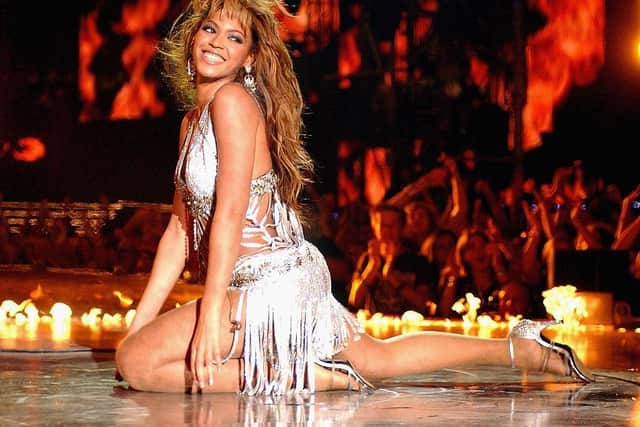

“We have to have a future pipeline of events and we have to inspire the next generation. We need to have a collaborative ‘Team Scotland’ effort, we need to have effort a strong sector voice, we need to maintain ambition and we need to take risks - which is not something that we like to do in what is very much a governance controlled world that we now live in - and we need to have a clear action plan.”
Advertisement
Hide AdAdvertisement
Hide AdMr Bush said Scotland had enjoyed “unparalleled success” in hosting events.
But he added: "I'm concerned that without a truly unified and concerted effort we face an existential threat that could take another 20 years to recover from.
“I genuinely believe we've delivered at the pace of a cheetah. However, that position can very quickly be eroded and I do not want to see us take a step backwards.
"Without committed long term incremental growth I do think that our decades of success are at risk.
"We’re already seeing significant threats to many events across the sporting, business and cultural sectors, yet this is an industry that contributes more widely than perhaps any other to society.
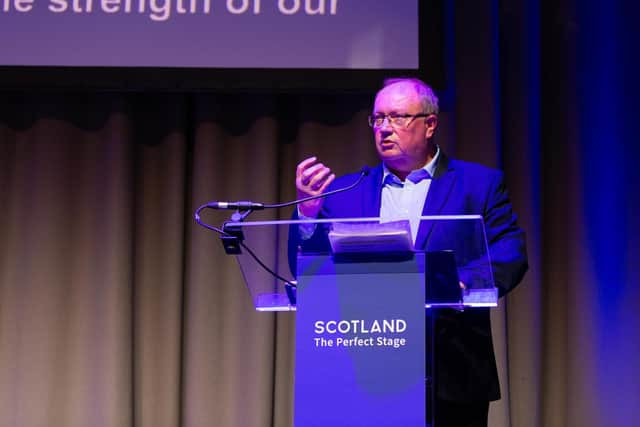

"The inextricable link between tourism and events could be at risk if we fail to convince public, commercial and philanthropic investors that this sector is actually an investment in growth and not a pure spend.”
In an exclusive interview, Mr Bush said: “We’ve had the foresight in Scotland where our politicians have supported ambition and risk.
Advertisement
Hide AdAdvertisement
Hide Ad"We are now at a time, given the economic environment, when the justification of investment needs to be much, much stronger.
"Unless we articulate better the wider benefits of events I think we will struggle to maintain levels of funding. We’re not making the case strong enough at the moment to get the cut-through for funding.”
Speaking at the events conference, Scottish culture minister Kaukab Stewart said: “The event sector is a valued contributor to Scotland's wellbeing economy.
"Together we can maintain Scotland’s reputation as a global leader in events. All of us recognise that we cannot afford any complacency. We need to retain our breadth and balance of events and locations or we will lose their benefits and the expertise that enables Scotland to occupy its current position of global leadership.
"The new event strategy’s ambition is to maintain this position so that we can continue to reap those benefits from now until 2035.
"We must continue to adapt, innovate and target resources towards the Scottish Government’s mission of equality, opportunity and community.”
Comments
Want to join the conversation? Please or to comment on this article.
